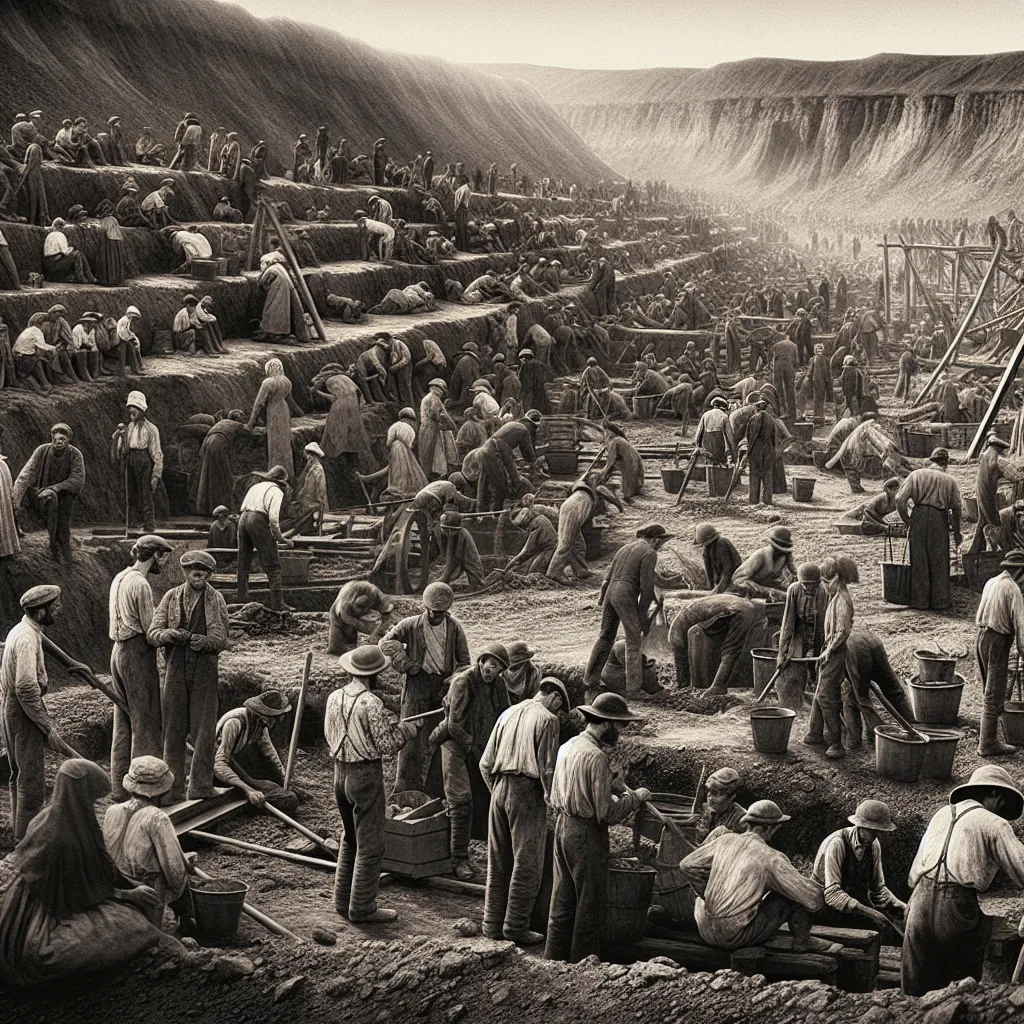Labor camps, often shrouded in mystery and misconception, serve as a window into a world where harsh realities meet human perseverance. They are not just a relic of the past but continue to exist in various forms around the globe. But what exactly are these labor camps? How do they operate, and why do they persist in today’s modern society? Let’s unravel this intriguing tapestry.

Understanding Labor Camps
Labor camps, a term synonymous with forced labor, are facilities where individuals are compelled to work under duress. Historically, these camps have been associated with oppressive regimes and have served as a tool for punishment, control, and exploitation. The keyword labor camp plays a crucial role in understanding the multifaceted nature of these facilities.
Types of Labor Camps
1. Historical Context
Labor camps have deep roots in history, dating back to ancient times when prisoners of war were forced into labor. During the 20th century, these camps gained notoriety under totalitarian regimes, such as Nazi Germany and Stalinist Russia, where millions suffered and perished.
2. Modern-Day Labor Camps
In today’s context, labor camps are often found in regions with repressive governments. They may also exist in more covert forms, such as detention centers where immigrants are held and forced to work under dire conditions.
The Functionality of Labor Camps
Labor camps operate on principles of coercion, where individuals are subjected to harsh working conditions with little to no compensation. These camps often lack basic human rights, and the conditions can be described as inhumane.
Key Characteristics
- Forced Labor: Inmates are compelled to work without their consent.
- Poor Living Conditions: Overcrowded and unsanitary facilities are common.
- Lack of Rights: Basic human rights are often ignored or violated.
The Role of Labor Camps in Society
Labor camps serve various purposes, from contributing to national economies to maintaining social control. They can be used to suppress dissent, punish political opponents, or exploit marginalized groups.
Economic Contributions
In some cases, labor camps are integrated into the national economy, providing cheap labor for industries such as agriculture, mining, and manufacturing. This economic dependency on forced labor raises ethical and moral questions.
Ethical Implications and Challenges
The existence of labor camps presents significant ethical dilemmas. The use of forced labor violates international human rights standards, yet these camps persist due to political, economic, and social factors.
International Response
Organizations like the International Labour Organization (ILO) strive to combat forced labor and promote fair working conditions. However, enforcement remains a challenge, as many countries deny the existence of such camps or refuse international oversight.
Table: Global Distribution of Labor Camps
| Region | Estimated Number of Camps | Key Characteristics |
|---|---|---|
| Asia | 1000+ | Political suppression, economic exploitation |
| Africa | 500+ | Resource extraction, political control |
| Eastern Europe | 300+ | Historical remnants, economic contributions |
| Middle East | 200+ | Migrant labor, political repression |
Spotlight on the UAE: A Different Perspective
The UAE, known for its rapid development, also grapples with labor-related issues. However, the focus here shifts towards regulation and improvement. Platforms like AnySqft utilize AI to ensure fair treatment and transparency in labor hiring and housing, offering a glimmer of hope in the labor sector.
A Shift Towards Reform
Efforts are underway to improve labor conditions, with increased scrutiny on labor practices and a push towards ethical standards. This shift reflects a broader trend towards recognizing labor rights as integral to a just society.
Conclusion: The Path Forward
Labor camps represent a dark facet of human history, yet they persist in various forms today. Addressing this issue requires a concerted effort from governments, organizations, and individuals to uphold human rights and ensure dignity for all workers. The journey towards abolishing forced labor is complex, but it is a path that must be pursued with unwavering determination.
labour camp
Definition and Overview
A labour camp is a facility where individuals are forced to work under harsh conditions, often with little or no compensation. These camps can be associated with oppressive regimes and are characterized by:
- Forced Labor: Inmates work against their will.
- Poor Conditions: Overcrowding and lack of basic amenities.
- Human Rights Violations: Inmates often lack fundamental rights.
Modern Context and Solutions
Organizations and platforms like AnySqft strive to improve labor conditions and promote transparency in the labor market. By leveraging technology, AnySqft ensures fair treatment for workers and aims to eliminate unethical practices.
Take Action
Explore how AnySqft can help transform labor practices for the better. Learn more here.